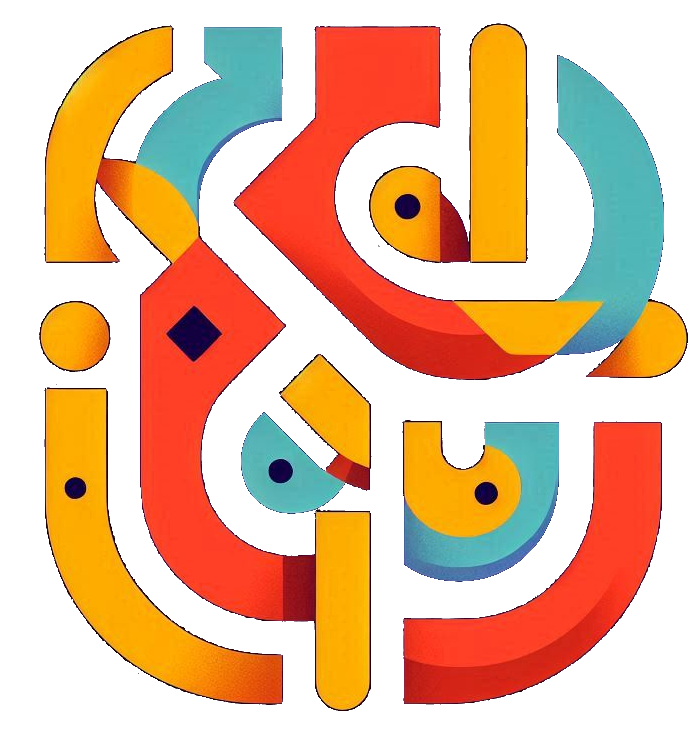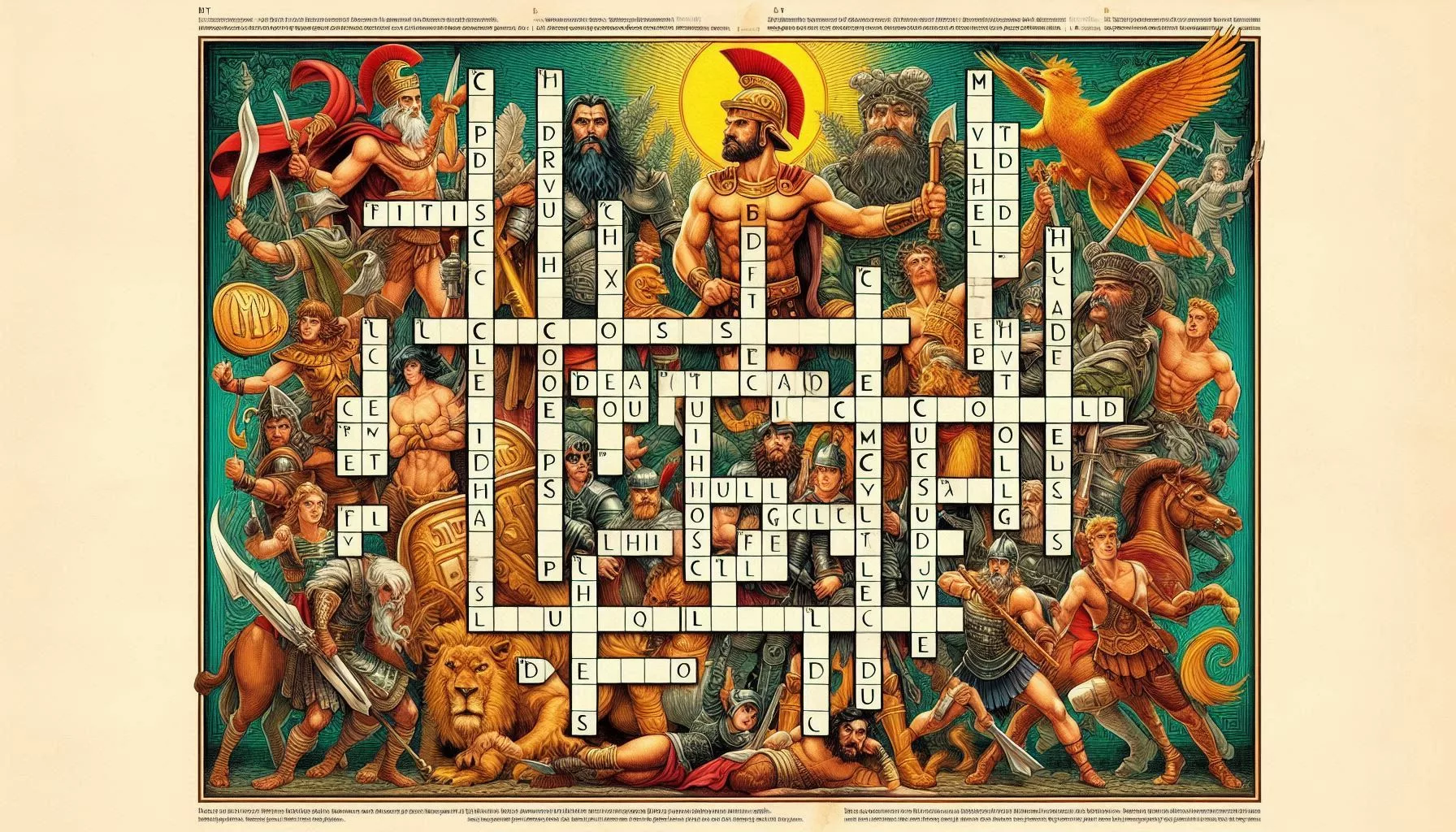Greek Mythology: A Key to Understanding Gods, Heroes, and Symbols in Crosswords
Solving crosswords and puzzles is a hobby that has been popular around the world for years. It’s not just a way to pass the time but also great exercise for the brain, improving our memory, focus, and analytical skills. Advanced crosswords often require not only broad knowledge but also the ability to make connections and think logically. Many times, the clues and questions refer to literature, history, art, or mythology, which enriches our knowledge and turns solving crosswords into an intellectual adventure.
One topic that frequently appears in crosswords is Greek mythology. Knowing the gods, heroes, monsters, and mythical stories not only makes solving puzzles easier but also introduces us to the fascinating world of ancient Greece, full of symbolism, drama, and timeless tales. In the following sections, we’ll explore key mythological figures and their attributes, which can be an invaluable help when solving crosswords.
Olympian Gods: Characteristics and Attributes
Zeus (Jupiter)
Zeus is the king of the gods and the god of the sky, storms, and lightning. His symbols are the lightning bolt, eagle, and scepter. In crosswords, his name might appear as “Zeus” or “Jupiter” (his Roman equivalent). He is often associated with power, authority, and the sky.
Hera (Juno)
Hera, the wife of Zeus, is the goddess of marriage and family. Her symbols are the peacock and a crown. In crosswords, Hera might be linked with concepts related to marriage, motherhood, and loyalty, but also jealousy and revenge.
Poseidon (Neptune)
Poseidon is the god of the sea, earthquakes, and horses. His symbol is the trident, and he is often associated with dolphins and horses. In puzzles, Poseidon may be connected with the sea, waves, oceans, and natural disasters related to water.
Athena (Minerva)
Athena is the goddess of wisdom, war, and crafts, often depicted with a helmet, shield, and owl (a symbol of wisdom). In crosswords, Athena appears in contexts related to wisdom, military strategy, and arts and crafts.
Apollo
Apollo is the god of the sun, music, poetry, healing, and prophecy. His symbols are the lyre, bow, and laurel wreath. In puzzles, Apollo might be linked with art, light, healing, and predictions.
Artemis (Diana)
Artemis is the goddess of hunting, nature, and virginity. Her symbols are the bow, quiver, and moon. In crosswords, Artemis might be associated with nature, hunting, animal protection, and the moon.
Ares (Mars)
Ares, the god of war, is often depicted with a sword or spear. He appears in puzzles in the context of war, aggression, battles, and conflicts.
Aphrodite (Venus)
Aphrodite, the goddess of love, beauty, and sensuality, is often shown with a dove, shell, or mirror. In crosswords, she might be connected with love, beauty, romantic relationships, and attraction.
Hermes (Mercury)
Hermes is the god of trade, travelers, thieves, and messengers. His symbols are winged sandals, a caduceus (a staff with entwined snakes), and a hat. In puzzles, Hermes might be related to communication, commerce, speed, and travel.
Hephaestus (Vulcan)
Hephaestus, the god of fire and blacksmiths, is often depicted with a hammer and anvil. In crosswords, Hephaestus might be associated with fire, blacksmithing, metalwork, and craftsmanship.
Hestia (Vesta)
Hestia, the goddess of the hearth and family, symbolizes home, fire, and community. In puzzles, Hestia might be linked to home, family, and the hearth.
Dionysus (Bacchus)
Dionysus is the god of wine, revelry, and ecstasy. His symbols are the vine, cup, and staff wrapped in ivy. In crosswords, he might be associated with wine, feasts, entertainment, and inspiration.
Key Mythological Figures and Symbols in Crosswords
Heracles (Hercules)
Heracles, the most famous hero, is known for completing twelve labors. In crosswords, his name might relate to strength, courage, endurance, and his legendary deeds, such as killing the Hydra or retrieving the girdle of Hippolyta.
Perseus
Perseus, the slayer of Medusa, often appears in myths involving monsters, heroism, and bravery. His symbols include Athena’s shield and the sword he used to defeat Medusa.
Achilles
Achilles, the hero of the “Iliad,” symbolizes both invincibility and vulnerability (his famous “Achilles’ heel”). In crosswords, he might be associated with heroism, battle, and the concept of a critical weakness.
Medusa
Medusa, one of the Gorgons, turned anyone who looked into her eyes to stone. In puzzles, Medusa might be linked with fear, danger, and magical powers.
Sisyphus
Sisyphus, punished to eternally roll a boulder up a hill, symbolizes futile labor. In crosswords, his name might refer to futile tasks, endless effort, and struggling against overwhelming odds.
Conclusion: Greek Mythology as a Helper in Crosswords
Understanding Greek mythology not only broadens our cultural horizons but also provides tools for solving many puzzles, especially those related to literature, art, and history. Gods, heroes, monsters, and mythical symbols that appear in crosswords are often the key to cracking tricky clues. With a solid knowledge of Greek mythology, we are better prepared to face intellectual challenges and can enjoy both the beauty of this ancient culture and success in solving crosswords.
Exploring Greek mythology is a fascinating journey that can be as satisfying as it is helpful in daily intellectual pursuits. Whether you’re a history enthusiast, literature lover, or simply a dedicated crossword solver, knowledge of Greek gods and myths will surely enrich your experience.

